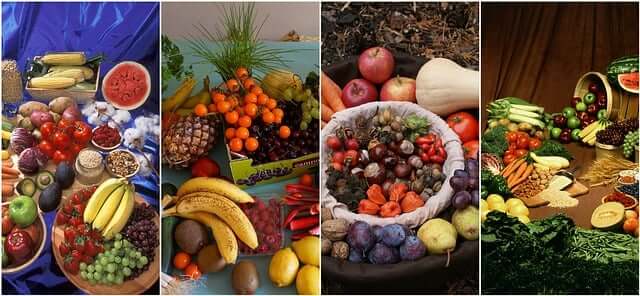The Benefits of a Plant-Based Diet
Plant-based diets have gained popularity in recent years due to their numerous benefits for overall health and well-being. One of the key advantages is their ability to reduce the risk of chronic diseases, such as heart disease, type 2 diabetes, and certain types of cancers. Studies have shown that individuals who follow a plant-based diet have lower blood pressure and cholesterol levels, as well as improved blood sugar control. This can significantly decrease the likelihood of developing these conditions, leading to a longer and healthier life.
In addition to preventing chronic diseases, plant-based diets are also known for their weight management benefits. By focusing on whole foods, such as fruits, vegetables, whole grains, legumes, and nuts, individuals can achieve and maintain a healthy weight. These foods are generally lower in calories and higher in fiber, which helps to promote feelings of fullness and reduce overeating.
Moreover, plant-based diets typically have a higher nutrient density, providing essential vitamins, minerals, and antioxidants that support overall health. This combination of factors not only aids in weight loss but also improves overall body composition and reduces the risk of obesity-related diseases.

Understanding the Basics of Veganism
Veganism is a lifestyle choice that involves avoiding the use of animal products, both in the diet and in other aspects of life. This includes abstaining from consuming meat, poultry, seafood, eggs, dairy, and honey. In addition to dietary choices, true vegans also avoid wearing or using products made from animal materials like fur, leather, and wool. The primary motivation behind veganism is the belief that animals have the right to be treated with respect and not be used for human purposes.
There are several reasons why people choose to embrace veganism. One of the main reasons is concern for animal welfare. Many vegans believe that animals should not be treated as commodities, but rather as sentient beings that deserve to live free from harm and exploitation. Others choose a vegan lifestyle for environmental reasons. Animal agriculture is a significant contributor to greenhouse gas emissions, deforestation, and water pollution.
By reducing or eliminating the consumption of animal products, vegans aim to reduce their ecological footprint and contribute to a more sustainable planet. Lastly, some people adopt a vegan diet for health reasons.
It has been suggested that plant-based diets can lower the risk of chronic diseases such as heart disease, type 2 diabetes, and certain types of cancer. As veganism gains more recognition, understanding the basics of this lifestyle can help individuals make informed choices about their own dietary habits and contribute to a more compassionate and sustainable world.
Essential Nutrients in a Plant-Based Diet
When following a plant-based diet, it is important to ensure that you are getting all the essential nutrients your body needs to thrive. One key nutrient to be mindful of is protein. While it is commonly associated with animal products, there are plenty of plant-based sources of protein available, such as beans, lentils, tofu, tempeh, and quinoa. Incorporating a variety of these protein-rich foods into your meals can help meet your daily protein needs.
Another essential nutrient to consider is calcium. While dairy products are a popular source of calcium, there are numerous plant-based alternatives that can provide this important mineral. Leafy greens like kale, broccoli, and collard greens are excellent sources of calcium.
Additionally, fortified plant-based milks, such as almond, soy, or oat milk, can be a great way to meet your calcium requirements. It is important to note that some plant-based sources of calcium may have lower bioavailability compared to dairy products, so it is advised to consume a combination of different calcium-rich foods to ensure adequate intake.
Building a Balanced Vegan Meal Plan
One key aspect of building a balanced vegan meal plan is ensuring that you include a variety of plant-based protein sources. While meat may be the go-to choice for protein in a non-vegan diet, there are plenty of delicious and nutritious alternatives for vegans.
Legumes such as lentils, chickpeas, and black beans are excellent sources of protein and can be incorporated into dishes like soups, salads, and stews. Additionally, options like tofu, tempeh, and seitan provide plant-based protein that can be used in stir-fries, sandwiches, and even as a meat substitute in burgers or tacos.
In addition to protein, it is crucial to include a wide range of fruits and vegetables in a balanced vegan meal plan. These plant-based foods are rich in vitamins, minerals, and antioxidants that are essential for promoting overall health and well-being.
Make it a goal to consume different colors of fruits and vegetables to ensure you’re getting a diverse array of nutrients. For example, you can include leafy greens such as kale or spinach, vibrant orange carrots, and antioxidant-rich berries in your meals and snacks. Remember to also incorporate whole grains like quinoa, brown rice, and oats for added fiber and essential nutrients.

